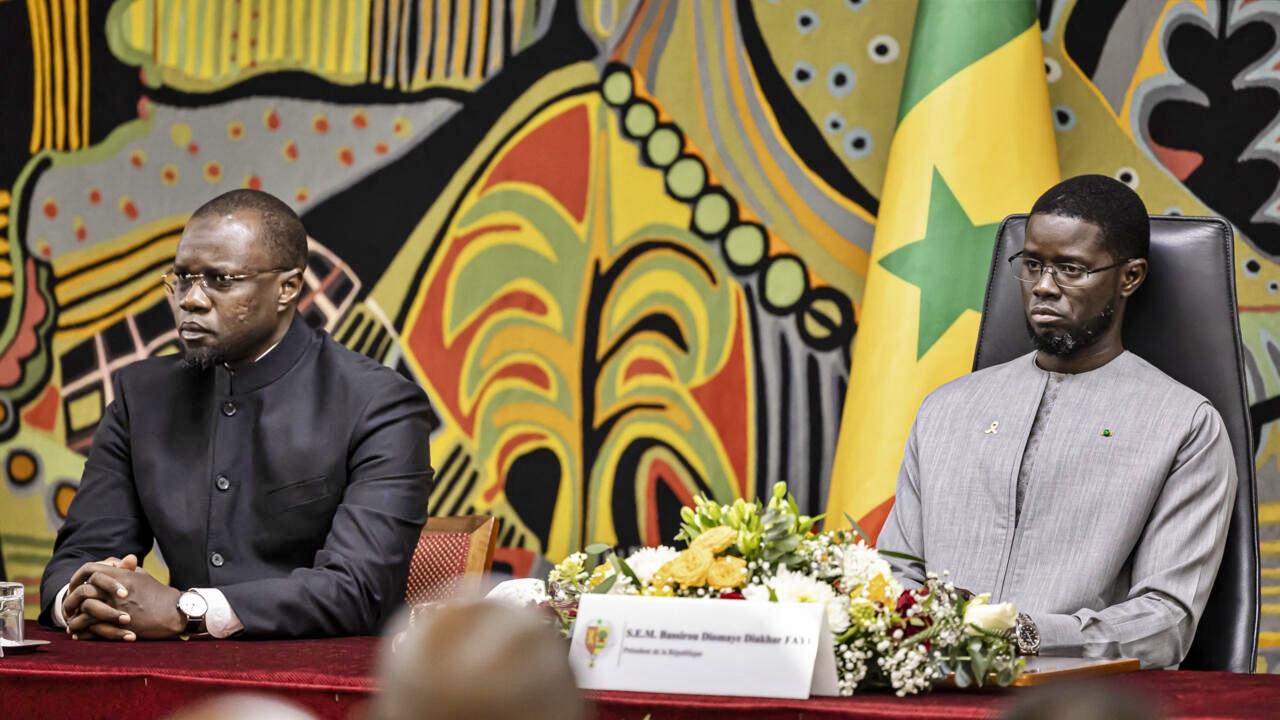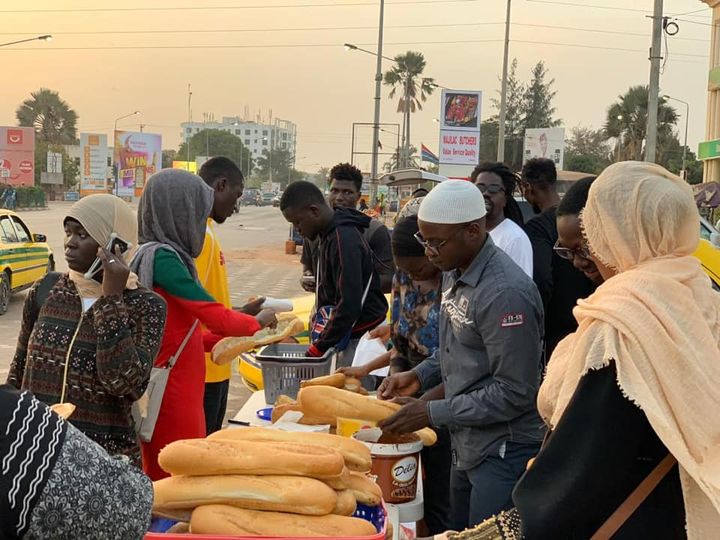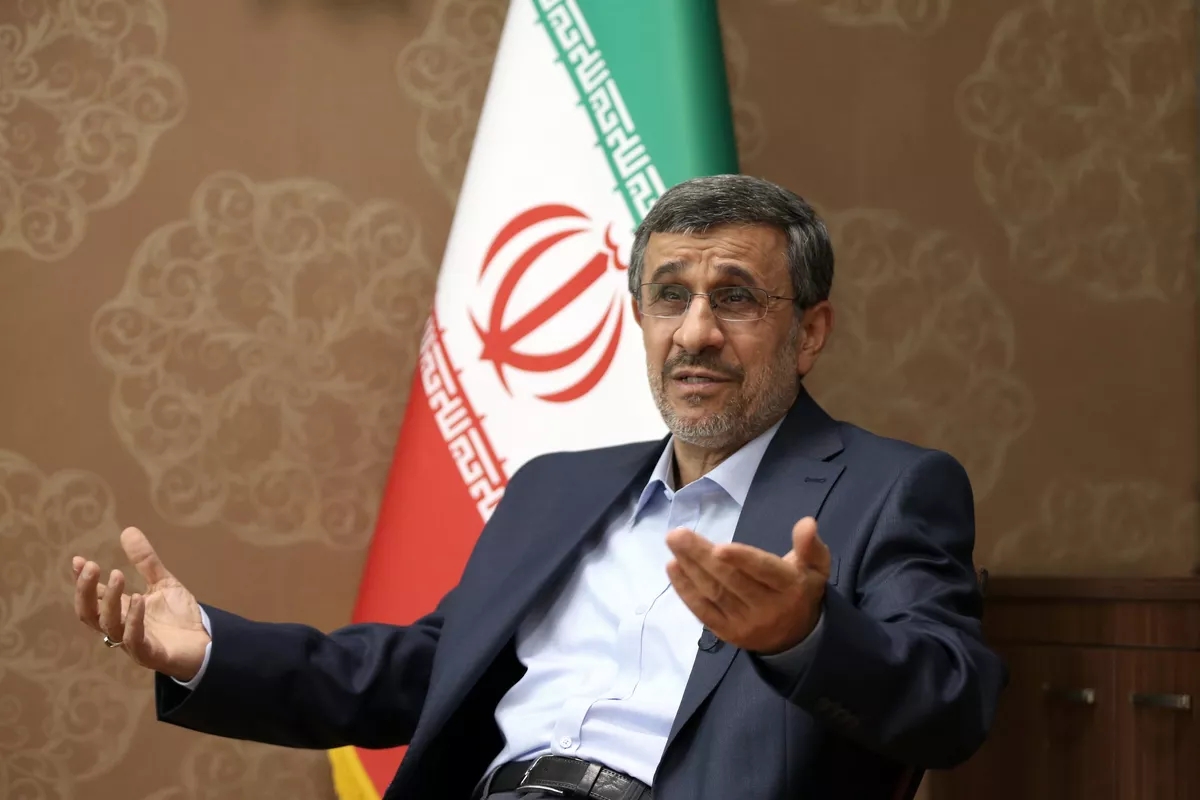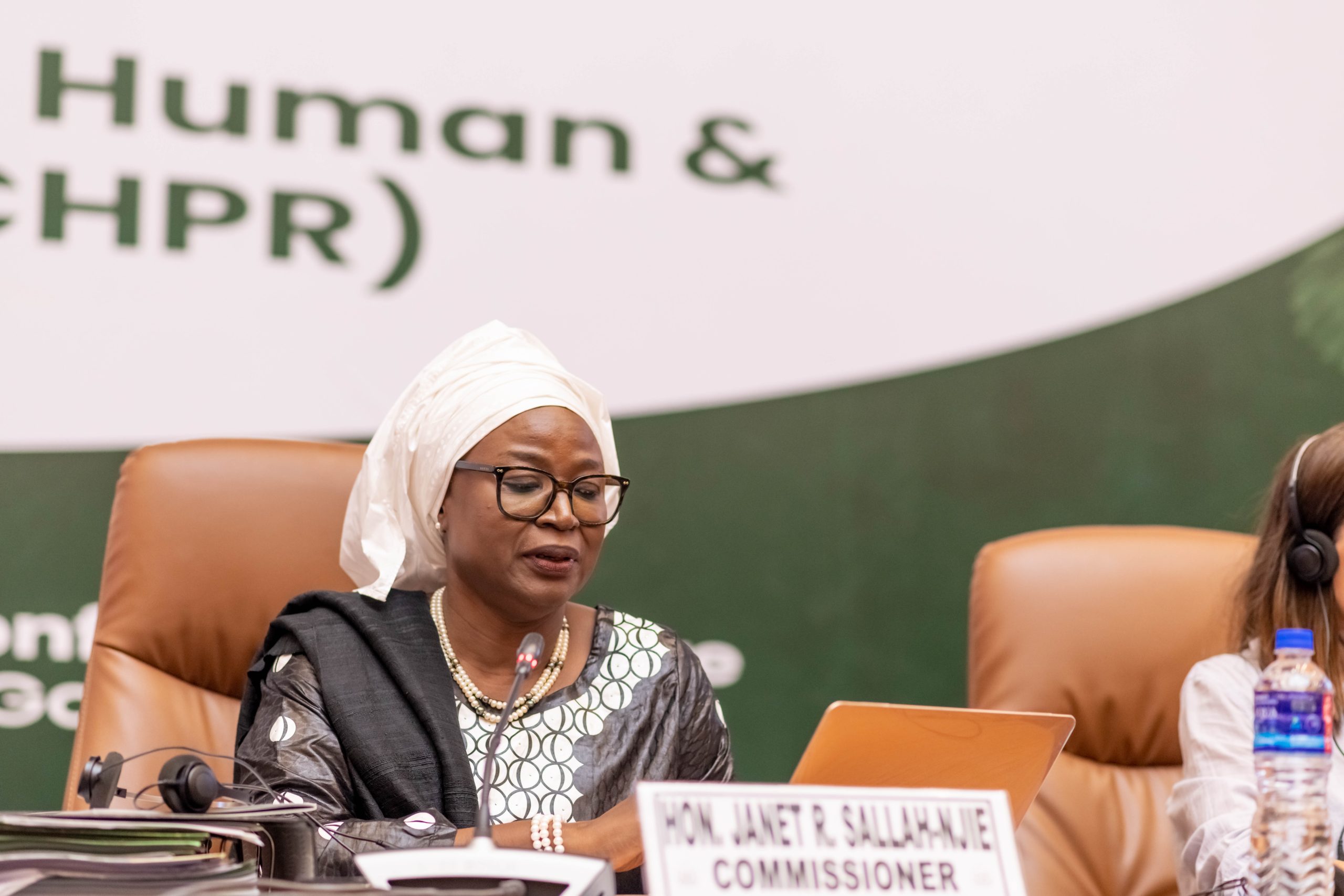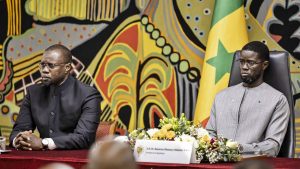Gambiaj.com – (BANJUL, The Gambia) – The Special Rapporteur on the Rights of Women in Africa, Hon. Commissioner Janet Ramatoulie Sallah-Njie, has called on African countries to accelerate the implementation of the Maputo Protocol and to ratify the newly adopted African Union Convention on Ending Violence Against Women and Girls (AUCEVAWG).
Commissioner Sallah-Njie made the call during a panel discussion on “Advocacy for the Continental Ratification and Implementation of Treaties under the ACHPR Monitoring” at the 85th Ordinary Session of the African Commission on Human and Peoples’ Rights (ACHPR), currently underway in The Gambia.
She emphasized that while Africa has made remarkable progress in advancing women’s rights through the adoption of landmark legal instruments, full implementation remains crucial to translating commitments into tangible change.
“Ratification without domestic implementation renders commitments largely symbolic and limits the potential of the Protocol to improve the lived realities of women and girls,” Commissioner Sallah-Njie said.
The Maputo Protocol: Foundation for Women’s Rights in Africa
Adopted in 2003 and entering into force in 2005, the Protocol to the African Charter on Human and Peoples’ Rights on the Rights of Women in Africa (Maputo Protocol) remains one of the most progressive regional treaties for the advancement of women’s rights.
It obliges States Parties to eliminate discrimination and promote gender equality across political, civil, economic, social, and cultural spheres.
Commissioner Sallah-Njie noted that effective domestication requires incorporating the protocol’s provisions into national laws, ensuring institutional reform, judicial enforcement, resource allocation, and public awareness.
As of September 2025, 46 of the 55 African Union (AU) Member States have ratified the Protocol, a milestone reflecting sustained advocacy and regional cooperation. However, nine countries are yet to ratify, hindering universal adherence.
“Achieving full, reservation-free ratification remains a strategic objective to ensure consistent protection of women’s rights across Africa,” she said.
Barriers to Ratification and Implementation
Despite progress, Commissioner Sallah-Njie highlighted persistent challenges slowing the domestication of the Maputo Protocol. These include conflicts between national laws and the Protocol’s provisions, particularly on reproductive rights and gender equality, as well as limited political will, leadership transitions, and deep-seated patriarchal norms.
She further noted that weak institutional capacity, lack of technical expertise, poor inter-ministerial coordination, and inadequate funding continue to impede progress.
“Addressing these challenges requires political advocacy, legal assistance, capacity building, and resource mobilization to strengthen the institutional foundations for implementation,” she told the Commission.
AUCEVAWG: A New Chapter in Africa’s Human Rights Framework
The adoption of the African Union Convention on Ending Violence Against Women and Girls (AUCEVAWG) in February 2025 represents a landmark step in Africa’s legal response to gender-based violence. Building on the Maputo Protocol, the Convention addresses all forms of violence, including femicide, technology-facilitated abuse, trafficking, and violence in conflict or humanitarian settings.
As of October 2025, seven AU member states, including Angola, Burundi, Djibouti, the Democratic Republic of Congo, Liberia, The Gambia, and Ghana, have signed and ratified the Convention. Commissioner Sallah-Njie described this as “a critical milestone” but stressed the urgency of accelerating ratifications across the continent.
“The Convention’s provisions on technology-facilitated violence are particularly critical in the digital age, where online harassment, cyberstalking, and non-consensual dissemination of intimate images have become widespread,” she emphasized.
Ratification, she added, represents not only a legal obligation but also a comprehensive policy response to the evolving spectrum of violence against women and girls.
Complementary Instruments for Gender Justice
Commissioner Sallah-Njie underscored that the Maputo Protocol and AUCEVAWG should be viewed as complementary instruments within Africa’s women’s rights framework, the former establishing the substantive rights and the latter operationalizing the elimination of gender-based violence.
“Their combined implementation enhances coherence across national legal systems and strengthens Africa’s collective response to gender-based injustice,” she said.
She stressed that universal and reservation-free ratification of both instruments is critical to achieving the goals of Agenda 2063 and the Sustainable Development Goals (SDGs), consolidating Africa’s progress in human rights, governance, and development.
New Advocacy Tool: Fourth Edition of the Women’s Rights Newsletter
As part of ongoing advocacy efforts, Commissioner Sallah-Njie announced the launch of the Fourth Edition of the Newsletter of the Special Rapporteur on the Rights of Women in Africa.
The publication spotlights two major developments, the lifting of reservations on key provisions of the Maputo Protocol and the ratification of AUCEVAWG, showcasing the growing momentum for women’s rights across the continent.
“The newsletter serves as both an advocacy and accountability instrument, documenting progress and sharing experiences among civil society organizations and development partners,” she said. “It emphasizes the importance of removing reservations, accelerating ratification, and catalyzing collective action.”




